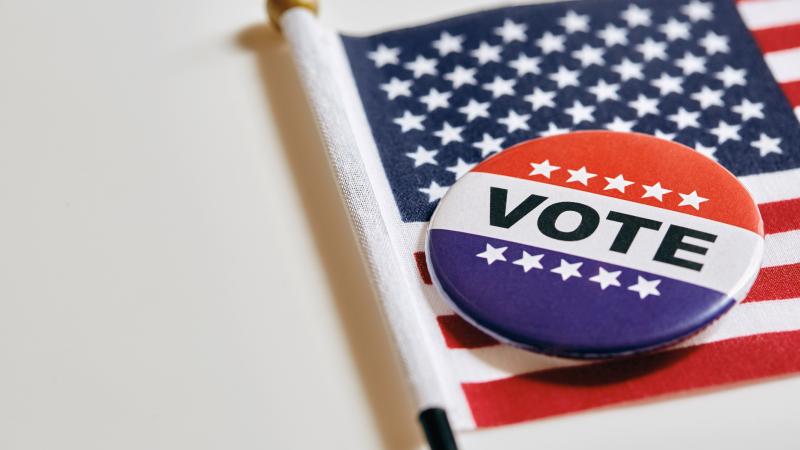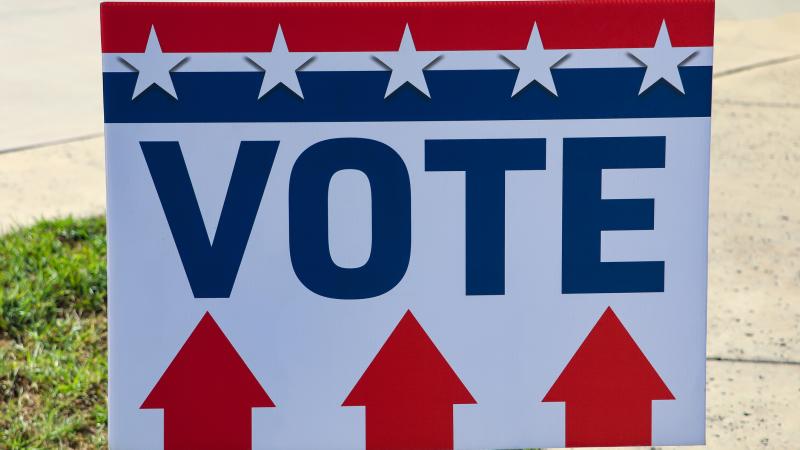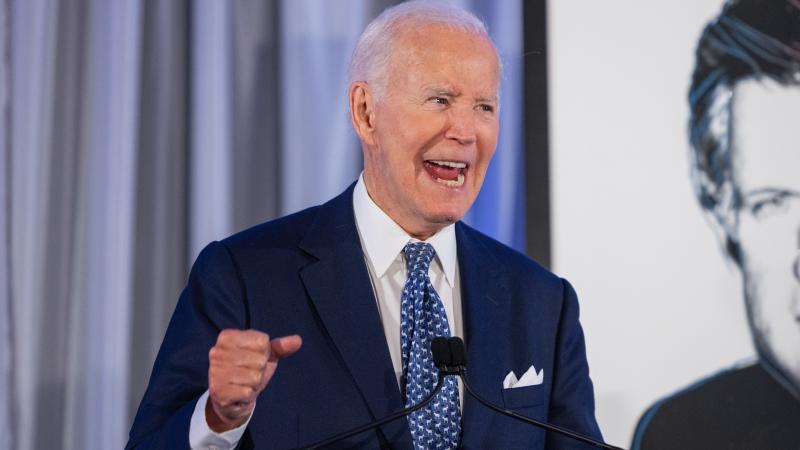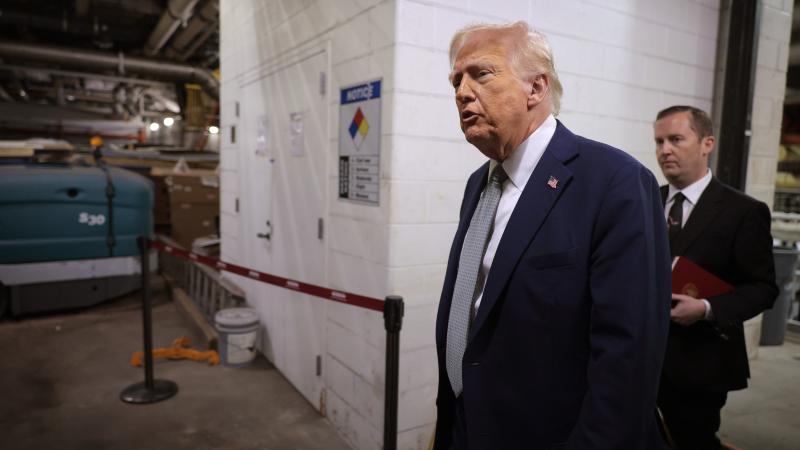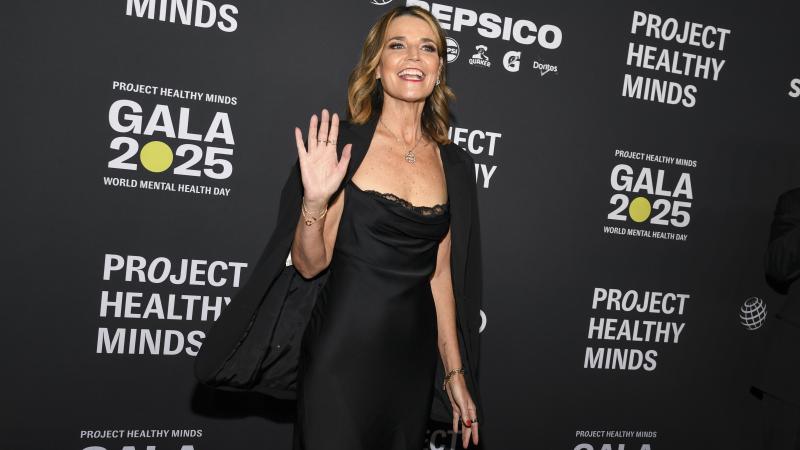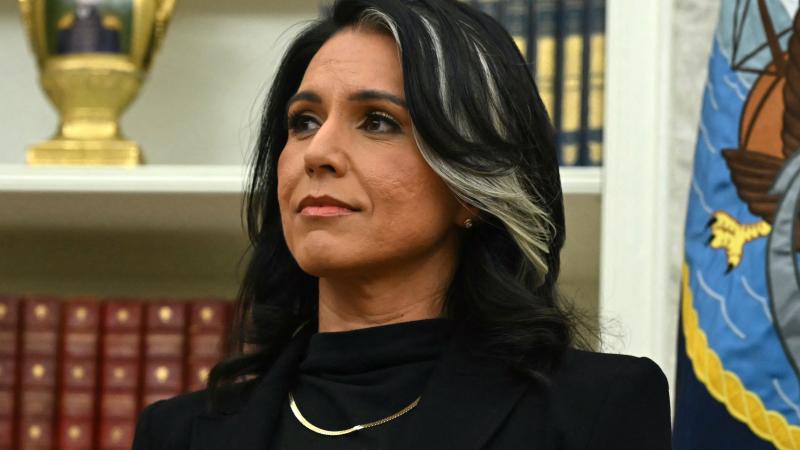Jay Jones wanted to divest from police & pull cops from schools, said Jacob Blake could’ve been him
Hateful and violent texts sent by Jay Jones have taken the spotlight as he seeks to become Virginia's attorney general. But his animosity towards police and the justice system, and his alignment with the BLM movement has flown largely under the radar so far.
During his first bid to become Virginia attorney general, Jay Jones promoted legislative efforts to divest from the police, pull cops from schools, end qualified immunity for law enforcement, and abolish cash bail. As he centered his unsuccessful 2021 Democratic primary run on police reform and race, he repeatedly invoked Black Lives Matter icons George Floyd and Jacob Blake.
On the campaign stump, Jones even said on Twitter that the two men could’ve been him.
Floyd died in police custody in May 2020, setting off a wave of oft-violent BLM protests and riots around the country. Blake was shot and partially-paralyzed by police while holding a knife in August 2020, and this helped reignite the BLM protests that year.
Jones made the men central to his first failed run to be Virginia attorney general.
A history of campaigning on racial divisiveness
Jones also repeatedly made his being Black central to the attorney general election in 2020 and 2021. “Virginia is experiencing a lot of change, and I think politics is about timing,” Jones said in April 2021. “We have an opportunity to elect the state’s first black attorney general to be the face of the system that has oppressed black people for years.”
Jones pushed for police reforms which echoed the “Defund the Police” mantra of BLM, and repeatedly claimed that he personally felt the knee on his neck and the bullets in his back when watching videos of Floyd and Blake. Jones frequently spoke of the “systemic racism” and the “remnants” of Jim Crow in Virginia, and pushed to get a Virginia cop fired for donating to the legal defense fund for Kyle Rittenhouse.
He lost to then-Virginia attorney general Mark Herring in the June 2021 Democratic primary, and Herring went on to lose to the Republican nominee, then-Delegate Jason Miyares, in the November 2021 election. Jones, who successfully won the Democratic nod this time around, is now seeking to defeat Miyares, who is running for reelection as the state's highest law enforcement officer.
Jones did not respond to a request for comment sent to him through his campaign website.
Jones repeatedly claimed he felt the knee on Floyd’s neck and the bullets in Blake’s back
The Virginia Democrat repeatedly invoked Floyd and Blake as he sought to win the Democratic nomination in 2021. Jones tweeted a Washington Post article written by a fellow Democratic Virginia delegate in June 2020, with Jones saying the piece “truly captures the Black experience with police along with a blueprint for the way ahead.” Jones shared a partial quote from the story in his tweet, with the fuller quote saying, “The daily indignities of being black can be burdensome. If we respond to it all, we would have riots daily.”
“I watched the George Floyd video. I could feel that officer’s knee on my neck as I watched it. I could feel the bullets in my back as I watched the video of Jacob Blake,” Jones said at the time. “This is a chance for Virginia to do the right thing and to do right by people. I promise you this will not have the financial impact, the chilling effect people say it is. Those are red herrings. This is an opportunity for our citizens to have their constitutional rights protected.”
Jones said in a January 2021 interview with Elections Daily that he would fight “institutional racism” as attorney general while he again invoked Floyd and Blake. “We are hoping that I have a bill for the winter session that will create a civil rights office in the Attorney General, which would give full investigational power to root out institutional racism in our banks, in our government and even within the attorney general’s office itself,” Jones said. “This is a huge part of who we are. We have a moment to really redefine our policing system, to redefine our criminal justice system, to reform our criminal code. To really show people what we’re all about. We are working under a system that clearly has its roots in Jim Crow and the black codes that has been papered over for far too long.”
The Virginia Democrat celebrated the Chauvin guilty verdict in April 2021 and repeated the line once more.
“Millions of Americans bore witness to George Floyd’s murder last summer. When I watched it, I felt Derek Chauvin’s knee on my neck,” Jones said in a statement. “Admittedly, I still feel the weight of the system’s oppression on me and the rest of Black America day in and day out.”
Making it about him: and race
Jones later sent a May 2021 tweet claiming, “When I saw George Floyd's murder, I felt that knee on my neck. When I watched the tape of Jacob Blake in Wisconsin, I felt those bullets in my back. Because that could be me. I was proud to discuss my campaign on MSNBC today, and I hope you'll watch.”
The MSNBC interview included a clipped quote from Jones where he said that “I felt that knee on my neck. When I watched that tape of Jacob Blake in Wisconsin, I felt those bullets in my back, because that could be me. All of the horrible injustice that you see across this country has a real impact on black folks. And I feel it.”
Later that month, Jones repeated the same sentiment in another tweet: “When I watch George Floyd’s murder, I feel the knee on my neck. When I see Jacob Blake’s shooting in Wisconsin, I feel the bullets hit my back. That’s why I have been a leader on police reform in the state legislature.”
During a campaign statement for the anniversary of Floyd’s death that month, Jones again pushed the same sentiment.
Jones argued that “Virginia has been forced to grapple with our own instances of police violence since Floyd’s death” and claimed that “what’s been disturbing to me is that Mark Herring has failed to take action in these cases.”
Current election bid by Jones rocked by his hateful texts
The Virginia Democrat’s bid to be the Virginia attorney general has been rocked by the revelations that he sent hateful texts wishing death upon his Republican political opponents and their children.
Jones wrote in 2022 that if a number of his former Republican colleagues were to “die before me” then “I will go to their funerals to piss on their graves” to “send them out awash in something.”
The Virginia Democrat also texted that, in a hypothetical situation in which he had only “two bullets” and was faced with Republican Speaker of the Virginia House Todd Gilbert and two dictators (Adolph Hitler and Pol Pot), then “Gilbert gets two bullets to the head” and “he receives both bullets every time.”
Jones also confirmed in texts first released by National Review that he had said that he hoped that Jennifer Gilbert’s children would die in her arms, writing that “only when people feel pain personally do they move on policy.” Jones added: “I mean do I think Todd and Jennifer are evil? And that they’re breeding little fascists? Yes.”
The Virginia Democrat apologized for the texts, saying in a statement that “I am embarrassed, ashamed, and sorry.”
USAToday noted last week that "the Jay Jones texts has led to bipartisan pushback, yet Democrats aren't calling for the former Virginia state lawmaker to step aside and seem to be standing by him." Appearing live on Richmond’s WRIC last Friday night, Jones apologized once again: “I’m so deeply, deeply sorry for what I said,” he said during the interview. “I wish that it hadn’t happened, and I would take it back if I could.”
Police association says Jones crossed "an unforgivable line"
Republican Virginia Delegate Carrie Coyner, to whom Jones had sent the hateful texts, also said this month that, in 2020, Jones had told her that a few police officers dying would stop them from killing more people.
Coyner said she told Jones in 2020 that “police officers have to make a split-second decision about whether or not to shoot a gun to protect themselves or protect others, and if they’re having to think about it, will this strip my whole family of everything … are they going to be able to make that split-second decision?”
She said she also told Jones at the time that “I believe that people will get killed. Police officers will get killed.” Coyner said Jones then retorted, ”Well, maybe if a few of them died, that they would move on, not shooting people, not killing people.”
“I did not say this,” Jones said in a statement to the outlet. “I have never believed and do not believe that any harm should come to law enforcement, period.”
A Virginia police association said that the remarks by attorney general hopeful Jay Jones "crossed an unforgivable line," calling them "profoundly reckless" and "an affront to fallen officers," according to Fox News.
Jones endorsed ‘divesting’ from law enforcement — in a spin on BLM’s ‘Defund the Police’ slogan
Jones endorsed the June 2020 criminal justice reform plan of the Virginia Legislative Black Caucus, of which he was a member, with the legislative strategy document of the black caucus including calls to “divest” from law enforcement just days after Floyd’s death and amidst the BLM rallying cry to “Defund the Police.”
He and the black caucus also wanted to “reduce” the presence of school resource officers inside of schools. The National Association of School Resource Officers defines an SRO as “a carefully selected, specifically trained, and properly equipped law enforcement officer with sworn authority, trained in school-based law enforcement and crisis response and assigned by an employing law enforcement agency to work collaboratively with one or more schools using community-oriented policing concepts.”
Jones tweeted that month that “I’m a proud member” of the black caucus and that “we stand for justice.”
“These issues are deeply important to the Virginia Legislative Black Caucus and the communities we represent,” Jones said in a June 24, 2020 Facebook post sharing the black caucus legislative priorities document. “Read our statement on our special session priorities below.”
Jones also promoted the black caucus plan on Twitter, saying, “Y’all ready? We sure are.”
The Virginia Legislative Black Caucus strategy document endorsement by Jones argued that “the country and the Commonwealth stand at the threshold of substantial and necessary social and political change” and that “as leaders, the next steps are to ensure that there is a bold swing towards greater racial and social justice and change across Virginia.”
The black caucus said they would use a special legislative session to introduce legislation to “Address & Combat Racism Directly,” to “Hold Police Accountable, Strengthen Regulation, & Improve Transparency,” and to “Prevent Law Enforcement Excessive Use of Force,” among other priorities.
The Jones-endorsed legislative plan said the black caucus aimed to “introduce legislation” to “Replace Law Enforcement’s Role in Certain Areas with Trained Specialists” and aimed at “DIVESTING from Large Law Enforcement Budgets & INVESTING More in Communities” and “Reducing SRO Presence in Schools & Replacing Them with Mental Health Professionals.”
VPM tweeted that “the Virginia Legislative Black Caucus has unveiled a slate of police reforms to be introduced during the Summer special session” and that “many of the proposed policies line up with those demanded by #BlackLivesMatters activists.” Jones retweeted that assessment comparing the black caucus efforts to the demands of BLM.
In response to police shooting and killing Breonna Taylor, Jones tweeted in September 2020, “Again, I can’t escape the simple question: why don’t Black Lives Matter too?”
“Over the course of 2020 and into 2021, we’ve seen dramatic injustices across this country,” Jones proclaimed. “Virginians are demanding reforms as it relates to our justice system, which we know has vestiges of the black codes, Jim Crow, and mass incarceration.”
Jones calls modern Virginia justice system "Jim Crow" as he called to end qualified immunity and cash bail
Jones would launch repeated critiques against law enforcement in the wake of the death of Floyd, and during his first unsuccessful run for the Democratic nomination to be attorney general he would fight to end qualified immunity for police officers and would promise to work to end cash bail. Jones talked quite about “institutional racism” and claimed that the Virginia criminal justice system still had the “vestiges” of Jim Crow.
Jones argued in October 2020 that any “attempt to dispel the notion of systemic racism is an insult as a Black man in America.” He also decried the “systemic racism that runs through our systems” in January 2021.
The Virginia Democrat’s current campaign website makes no mention of this.
“Although I’m 4 or 5 generations removed from my enslaved ancestors who toiled across the American South, we’re still fighting the same struggle for fairness, justice, and equity,” Jones said on June 19, 2020. “But on this #Juneteenth, I’m full of hope that we’re starting down the path toward change.”
Jones declared his bid to be attorney general on July 13, 2020. Jones said: “Today, I am announcing that I’m running for Attorney General of our great Commonwealth, not just because it is time for a new generation of leadership, but because it is time for a Commonwealth that embraces everyone and lifts everyone, no matter who you are, where you come from, or what you look like.”
The Virginia Democrat’s campaign launch endorsement list in 2020 included nearly three dozen Democratic state senators and delegates, including Delegate Lamont Bagby, the chairman of the Virginia Legislative Black Caucus.
Jones in April 2021 argued that Herring should join him in calling for an end to qualified immunity.
“Today, I’m calling on Mark Herring to support the repeal of qualified immunity in Virginia and fight to bring true accountability to policing in our Commonwealth,” Jones said. “Too often, justice before the law is denied to Virginians who have suffered at the hands of law enforcement because of the outdated practice of qualified immunity. It’s time to tear down this dark relic of the past and instead build true trust between law enforcement and the communities they serve by holding responsible officers who abuse their position.”
Jones said in a May 2021 roundtable with Bagby and NAACP leaders that “I know that the vestiges of slavery and Jim Crow live on in our Commonwealth’s criminal code, in our judicial system, and in our policing, and we have to be very aggressive in rooting them out. They criminalize black and brown communities.”
The Virginia Democrat said on Facebook that month that “even as an elected official, when I’m stopped by a police officer, I grip the steering wheel more tightly” and said that “we cannot continue to allow Black Virginians to be disproportionately targeted for police stops.” Jones argued that “that’s why I have laid out a comprehensive justice reform plan that will improve police training and work to root out racial bias in policing.”
His campaign put out a press release on “Reforming Our Criminal Justice System” that month.
Jones also said in his May 2021 plan that he would “work with the legislature and use the bully pulpit of the AG’s office to end qualified immunity that shields law enforcement from the civil consequences of illegal actions.”
The Virginia Democrat said in his May 2021 debate with Herring that he believed he was qualified to be attorney general based on “my lived experience as a black man” as well as his time as a trial attorney and a Virginia state delegate.
“We need to change our system. We need to make it more equitable and just,” Jones said in the debate. “That’s why I want to end qualified immunity and end cash bail.”
Jones also said in the debate that the vestiges of Jim Crow remained, and that “those scars and vestiges are in my mind, they live in my parents’ lives, they live in my grandparents’ lives, they live in black Virginians’ lives all across this commonwealth.” He referred to a Confederate flag seen hanging on a highway and “restrictive” voter laws as examples, adding during the debate that “we know that our system is inequitable and unjust.”
Jones also said it was “predominantly black and brown” people in prison, and “that doesn’t make any sense.”
The George Floyd saga
Prior to his death in police custody, Floyd had previously been arrested multiple times on drug and theft charges and had served multiple stints in prison. Floyd had been arrested and convicted for dealing cocaine as well as for aggravated robbery when he held a woman at gunpoint when he robbed her home, among other parts of his criminal history.
Police were called when a store clerk believed Floyd had attempted to use a counterfeit $20 bill to purchase cigarettes. Floyd struggled with police as they sought to detain him, and Minneapolis police officer Derek Chauvin ultimately knelt on his neck and on his back for nearly nine minutes, and Floyd died.
Chauvin and three other officers involved in the incident were fired from the Minneapolis Police Department. Chauvin was found guilty in April 2021 of second-degree murder, third-degree murder, and manslaughter. Chauvin also pleaded guilty in December 2021 to federal charges of depriving Floyd of his civil rights, and was sentenced in June 2022 to over 22 years in prison.
The Minneapolis state charges against Chauvin in May 2020 stated that “the autopsy revealed no physical findings that support a diagnosis of traumatic asphyxia or strangulation.” The charges also said: “Mr. Floyd had underlying health conditions including coronary artery disease and hypertensive heart disease. The combined effects of Mr. Floyd being restrained by the police, his underlying health conditions and any potential intoxicants in his system likely contributed to his death.”
The Hennepin County Medical Examiner in June 2020 stated that Floyd’s cause of death was “cardiopulmonary arrest complicating law enforcement subdual, restraint, and neck compression” and that his manner of death was a “homicide.” The medical examiner said that Floyd “experienced a cardiopulmonary arrest while being restrained by law enforcement officers” but noted that, among the “significant conditions” which Floyd had were “arteriosclerotic and hypertensive heart disease, fentanyl intoxication, [and] recent methamphetamine use.”
The medical examiner’s autopsy report showed Floyd had taken significant quantities of fentanyl and methamphetamine before he died.
The Supreme Court declined to hear Chauvin’s appeal in 2023, although his appeals effort is continuing in federal court.
Jones pushed the fraudulent "Hands Up! Don't Shoot!" myth
Jones listed Michael Brown alongside George Floyd and others as examples of “black Americans murdered by police officers since 2014” in a June 2020 opinion piece. Jones wrote then that “George Floyd’s brutal execution in Minneapolis has stirred a movement across this country to demand justice” and that “time and time again, violence against individuals at the hands of the police often goes unpunished as ‘law and order’ prosecutors repeatedly decline to pursue accountability through criminal actions.”
During his May 2021 debate with Herring, Jones expressed frustration with the then-incumbent Virginia attorney general, criticizing Herring for having waited until 2021, in the midst of a Democratic primary, to create an Office of Civil Rights within the Virginia attorney general’s office and noting that “Michael Brown was killed in 2014.”
The pervasive “Hands up! Don’t shoot!” slogan and gesture at many Black Lives Matter demonstrations stemmed from the 2014 police shooting of Michael Brown, an unarmed black 18-year-old, by Darren Wilson, a white police officer from Ferguson, Missouri. Witnesses said Brown punched Wilson in his police car and struggled for control of the officer’s gun. A brief chase ensued which ended with Brown turning around and charging at Wilson, who then shot and killed Brown. Some witnesses who initially claimed Brown had his hands up at this moment later recanted, and an Obama Justice Department investigation did not support the claims that Brown was trying to surrender when he was killed.
Wilson shot and killed Brown around noon on Saturday, Aug. 9, 2014, in what would spawn the “Hands up! Don’t shoot!” narrative and lead to widespread protests, rioting, and clashes with police at the time.
The false narrative was unskeptically adopted by left-leaning media, who raised eyebrows when three of CNN’s hosts expressed solidarity with protesters, and on air, after rolling footage of activists marching in the streets of New York and Washington D.C. CNN's Sally Kohms said, “We want you to know that our hearts are out there marching with them.” Mel Robbins and Margaret Hooper, joined their co-host’s support of the demonstrators by also raising their hands, demonstrating the “Hands Up Don’t Shoot” gesture.
A grand jury declined to indict Wilson, and the Department of Justice, under President Barack Obama and Attorney General Eric Holder, opened an independent civil rights investigation, culminating in an 86-page memorandum in 2015 which concluded Wilson’s actions did not warrant prosecution and the evidence did not support the claim that Brown was attempting to surrender to Wilson when he was shot and killed.
The Justice Department report said that “while credible witnesses gave varying accounts of exactly what Brown was doing with his hands as he moved toward Wilson — i.e., balling them, holding them out, or pulling his pants up — and varying accounts of how he was moving — i.e., ‘charging,’ moving in ‘slow motion,’ or ‘running’ — they all establish that Brown was moving toward Wilson when Wilson shot him.” The investigators added that “although some witnesses state that Brown held his hands up at shoulder level with his palms facing outward for a brief moment, these same witnesses describe Brown then dropping his hands and ‘charging’ at Wilson.”
Wilson said Brown grabbed at his firearm and struggled for control over it, so Wilson fired a round which struck Brown’s hand. The Armed Forces Medical Examiner System pathologist concluded that “the wound to the thumb is consistent with Brown’s hand being on the barrel of the gun itself, though not the muzzle, at the time the shot was fired.” Wilson fired one more shot before Brown took off down the street.
Wilson gave chase, and autopsy results “confirm that Wilson did not shoot Brown in the back.” Wilson said that Brown ran 20 to 30 feet down the street before he abruptly stopped and turned toward Wilson appearing “psychotic,” “hostile,” and “crazy.” Wilson said Brown then charged and closed the gap between them to roughly 15 feet, which made Wilson “fear for his life.”
The officer fired ten additional shots at Brown as he ran toward him and leaned forward as though he was getting ready to “tackle” Wilson. The final shot entered the apex of Brown’s skull, killing him. The autopsy concluded Brown was leaning forward when fatally shot.
Jones helps fire Virginia cop who made $25 donation to Rittenhouse defense fund
Jones used his perch as a Virginia delegate to help successfully push for the firing of a Virginia police officer who donated $25 to the legal defense fund for Kyle Rittenhouse, a then-17-year-old who killed two people in self-defense during the Kenosha riots on August 25, 2020.
Rittenhouse said he came from Illinois to Wisconsin to defend property from rioters, and he was armed with a Smith & Wesson M&P 15 rifle. Joseph Rosenbaum chased Rittenhouse in a car dealership parking lot, throwing a bag at him and then grabbing the barrel of Rittenhouse’s rifle. Rittenhouse shot and killed him just after another person with a gun had fired a shot close by.
Rittenhouse fled the scene of the shooting and was chased by a crowd, stumbling and falling to his back as he was attacked. Anthony Huber smacked Rittenhouse in the head with a skateboard and tried to snatch away Rittenhouse’s weapon, and Rittenhouse then shot and killed him too.
The scuffles continued, when Gaige Grosskreutz then moved toward Rittenhouse and aimed a pistol at him. Rittenhouse fired on him and wounded Grosskreutz in his right arm. Rittenhouse then jogged away and raised his hands as police cars approached, but they drove right past him.
Rittenhouse was charged with murder, but a jury found Rittenhouse not guilty on all charges, including homicide, attempted homicide, and reckless endangerment in November 2021.
Sergeant William Kelly of the Norfolk Police Department was revealed in April 2021 to have donated $25 in September 2020 to the GiveSendGo fundraising page for Rittenhouse’s legal defense after the fundraising website’s data was leaked to the Guardian.
Kelly’s anonymous donation to Rittenhouse’s legal defense was accompanied by a message: “God bless. Thank you for your courage. Keep your head up. You’ve done nothing wrong. … Every rank and file police officer supports you. Don’t be discouraged by actions of the political class of law enforcement leadership.”
Jones immediately called for Kelly’s firing, telling the media that “we have to get to the bottom of this reported conduct, which is utterly disgusting” and that “if these allegations are true, Officer Kelly must resign from the Norfolk Police Department immediately.” Jones added that “should he not resign, he must be terminated” and that “we must root out bias and hatred in our justice system and have true accountability in policing.”
Democratic Norfolk Mayor Kenny Alexander called the allegations against Kelly “alarming and by all means not consistent with the values of our city.” The city of Norfolk announced later that month that “City Manager Chip Filer has accepted the recommendation of Norfolk Police Chief Larry D. Boone and Lieutenant William Kelly has been relieved of duty.”
Filer claimed that “his egregious comments erode the trust between the Norfolk Police Department and those they are sworn to serve.” Boone said that “we do not want perceptions of any individual officer to undermine the relations between the Norfolk Police Department and the community.”
Kelly defended himself after Rittenhouse was found not guilty.
“I donated $25, off-duty, of my own money, and I gave some words of encouragement. I didn’t think much of it. I continued on with my life and several months later I got a phone call. Somebody had told me that people were calling the police department complaining about my donation,” Kelly said in November 2021. “I felt like, I was like, a sacrificial lamb. Like they were willing to discard me in an effort to make the pressure from certain parts of the public go away.”
Kelly’s lawyer filed an employee grievance against the Norfolk police department, and in February 2023 both Kelly’s attorney and the city of Norfolk said that the “matter has been resolved to the mutual satisfaction of both parties.”
Jones consistently calls his political opponents racist, Nazis, fascists
Jones also has a history of calling his national and state political opponents racist and worse.
President Donald Trump tweeted in January 2020 that “your 2nd Amendment is under very serious attack in the Great Commonwealth of Virginia” because “that’s what happens when you vote for Democrats, they will take your guns away.” In response, Jones tagged the FBI on Twitter and told the bureau to “come get this guy he's promoting Nazi and white supremacist propaganda.” Jones also called Trump a “racist” in a tweet of October that year.
The Virginia Democrat also said in July 2022 that “my stomach churns every time I see these videos of insurrectionists storming the Capitol, yet I've still never seen a single Black rioter.” Jones added that “our country might not always treat us with dignity, but I can tell you we'd never engage in behavior like January 6th even at our angriest.”
Republican Virginia Governor Glenn Youngkin signed a Juneteenth proclamation in 2022, and Jones responded by claiming on Twitter that Youngkin “remains a white supremacist, despite what these nods to Black folks suggest.”
Miyares — now running for reelection against Jones — tweeted on Juneteenth in 2022 that “on #Juneteenth2022 we celebrate the end of slavery, one of the worst evils and darkest parts of our nation’s history, and the start towards freedom and equality for all.”
Jones tweeted in response, “This is rich coming from the guy who advocated keeping hundreds of Black Virginians behind bars by repealing Earned Sentence Credits. You celebrate the end of slavery but support a modern form of it. Your evil and phoniness knows no bounds.”
Miyares has sought to reform Virginia’s Enhanced Earned Sentence Credits law. Miyares presented the A.G.'s office in July of this year “alarming new data on recidivism rates and shared firsthand accounts from victims, families, law enforcement, prosecutors, and victim advocates whose lives and communities have been devastated by violent offenders released early under the law.”
Miyares argued that “the EESC program allows serious, violent, repeat offenders to receive substantial sentence reductions, but the General Assembly failed to include safeguards to protect Virginians or reduce recidivism” and that “instead, it rewards offenders with early release for behavior that should be expected—such as completing basic programming and avoiding major infractions—even for those assessed as high-risk for violent re-offending.”
Jones and Miyares will face off in a debate this Thursday, where the hateful texts sent by, and the prior anti-police agenda pushed by Jones will likely be in the spotlight.
The Facts Inside Our Reporter's Notebook
Links
- said
- pushed
- echoed
- claimed
- âsystemic racismâ
- âremnantsâ
- pushed
- wrote
- texted
- confirmed
- apologized
- said
- told
- told
- told
- retorted
- told
- statement
- endorsed
- strategy document
- defines
- tweeted
- said
- also
- promoted
- strategy document
- said
- said
- said
- tweeted
- tweeted
- tweeted
- article
- said
- interview
- said
- added
- celebrated
- said
- tweet
- interview
- repeated
- campaign statement
- said
- argued
- said
- saying
- post
- added
- repeated
- proclaimed
- argued
- decried
- statement
- argued
- said
- said
- added
- endorsement list
- wrote
- argued
- said
- said
- press release
- declared
- said
- tweeted
- said
- said
- said
- said
- said
- pointed
- said
- campaign website
- current section
- says
- current website
- arrested multiple times
- criminal history
- found guilty
- pleaded guilty
- sentenced
- state charges
- said
- stated
- showed
- declined
- appeals effort
- continuing
- listed
- wrote
- debate
- âHands up! Donât shoot!â
- investigation
- narrative
- 86-page memorandum
- said
- added
- said
- said
- said
- said
- said
- released
- concluded
- announced
- said
- interview
- visited
- said
- said
- used his perch
- not guilty
- revealed
- leaked
- message
- said
- told
- added
- called
- announced
- claimed
- said
- defended himself
- said
- said
- tweeted
- tagged
- tweet
- said
- not
- accurate
- report
- signed
- claiming
- tweeted
- tweeted
- said
- data
